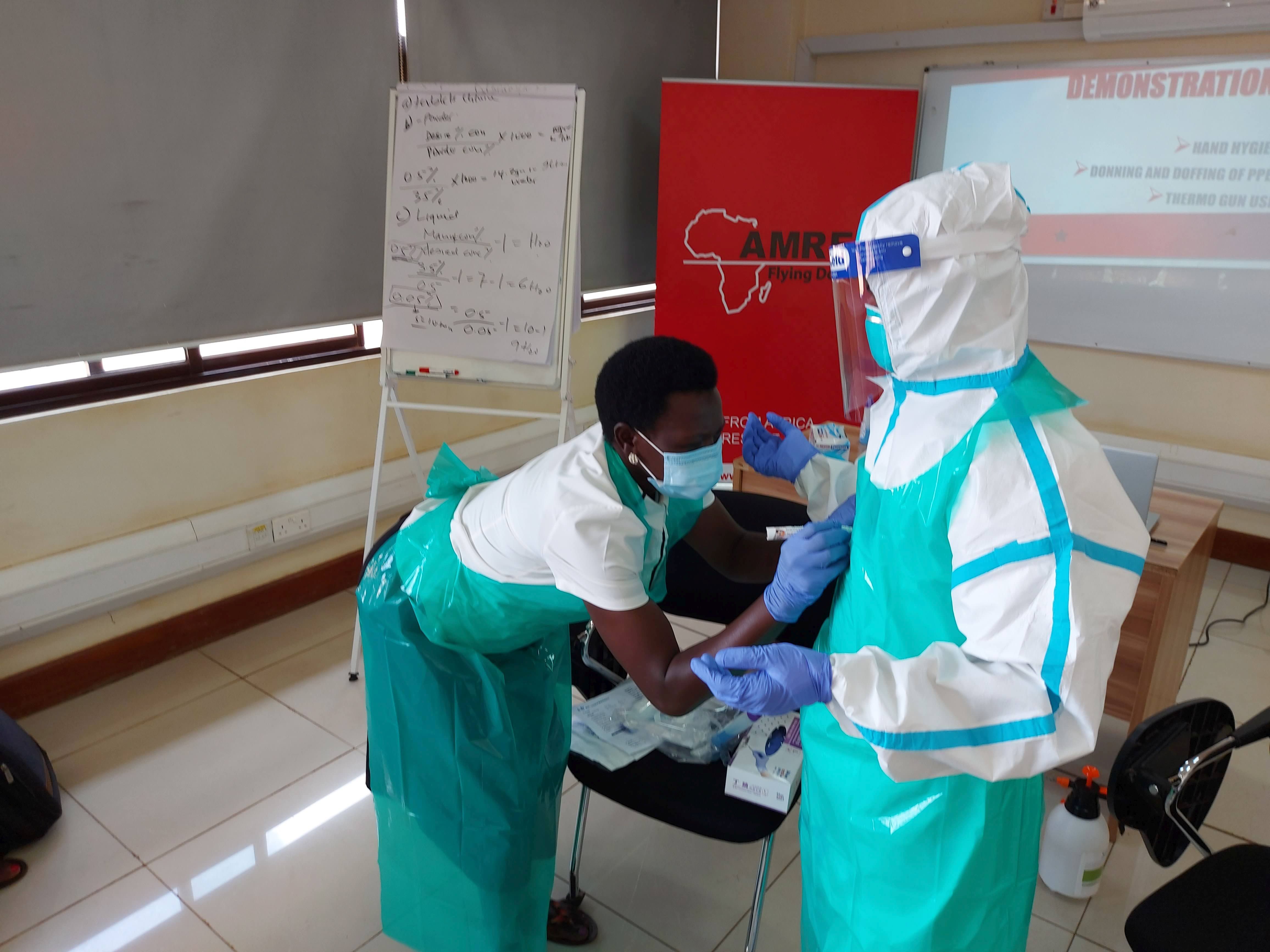
Joint efforts towards better preparedness in the East African Community
Arusha, 27 December 2021: On March 11, 2020, the World Health Organization (WHO) declared the novel coronavirus disease (COVID-19) outbreak a global pandemic. Almost two years since, there have been over 5 million deaths globally, great disruption to trade and devastating impacts on the lives and livelihoods of communities across the world.
The initial response to the outbreak was slow or lacking altogether in many parts of the world. Numerous systems in place were not prepared or did not provide for swift response and mitigation measures. Many perceived the outbreak singularly as a health issue and thus, the response was conducted as such, locking out key stakeholders from sectors such as agriculture, education, trade, tourism and many more, all which were also greatly slammed by repercussions of the outbreak.
COVID-19 aside, the Rift Valley, Marburg, Dengue and Crimean Congo fever, Polio and Cholera pathogens are widespread in the East African Community (EAC) region and can cause outbreaks that may affect public health and livelihoods at any time. On behalf of the German Government, the Deutsche Gesellschaft für Internationale Zusammenarbeit (GIZ) GmbH has been working together with the EAC Secretariat to improve the preparedness of Partner States for disease outbreaks since 2017.
In a project with the International Organisation for Migration (IOM), the Secretariat is currently targeting areas in the region that have a high risk for infection transmission due to crowded living conditions and a lack of clean water. The first handwashing facilities have been established at these so-called hotspots. The facilities also cater for children and persons with disabilities. This will reduce the risk of infection with COVID-19 and other infectious diseases, particularly for vulnerable groups. More than 1 million people will benefit from the measures.
The Secretariat has also carried out capacity building in the form of emergency intervention trainings for international airports and border posts staff on COVID-19 preparedness and response. These points of entry entail a high risk in terms of the spread of infectious diseases as centres of movement of people, animal and goods between countries. A total of 650 staff from various units such as port and animal health, customs, immigration, luggage handlers and border security were trained as trainers from September 2020 at 10 international airports, 12 One Stop Border Posts and four harbours. Their trainer certificates are valid for 2 years. The trainings were organised by the EAC Civil Aviation Safety and Security Oversight Agency, CASSOA, and conducted by AMREF Flying Doctors.
All measures of the EAC in the prevention and response to events of public health concern are guided by the One Health approach, which simply calls for multilateralism and a multisectoral view in the prevention and response to events of public health concern. The Secretariat is currently developing an EAC regional One Health Strategy. Once validated and adopted, the strategy will serve as a policy instrument, mainstreaming the implementation of One Health activities in the region. In addition to the strategy, a short course curriculum on “Pandemic Preparedness under a One Health approach,” has been developed and piloted at the Egerton University in Kenya and Makerere University in Uganda. Evaluation of the course yielded encouraging findings: A recommendation to expand the course to a full post graduate diploma study course with shorter option for policy makers and communities.
East Africa has drawn key lessons from Ebola epidemic in 2014/2016 in West Africa: that better preparedness is needed and with it a pool of rapidly deployable experts to address public health emergencies promptly and efficiently from the very start. The establishment of a regional pool of rapidly deployable experts from various sectors relevant to containment of epidemics is in progress. The pool will ease the process of identifying, contacting and deploying the “right” experts when necessary and will strengthen the regional response to public health emergencies.
Residents in the EAC and other stakeholders have not been left behind. An informed people are better placed to act in ways that could slow the spread of disease, thus protecting themselves and their livelihoods. The EAC has a regional risk and crisis communication strategy in place that will enable experts communicate better about disease outbreaks. Together with its standard operating procedures, the strategy guides users on areas such as managing rumours – an increasingly crucial aspect during epidemics.
International cooperation and multilateralism play an important role in the response to epidemics. In this regard, the Secretariat, WHO and other partners conducted a cross-border field simulation exercise at Namanga on the Kenya-Tanzania border in 2019. The exercise enabled the Secretariat and the two Partner States to assess the pandemic preparedness status and identify gaps that compromise efficiency in prevention, response and mitigation. The outcomes are being used to facilitate practical corrective actions to protect people in the region and beyond.
As we mark the International Day of Epidemic Preparedness today, we remind ourselves that preparedness is a sound investment, costing far less than emergency expenditures.
---
The “Support to Pandemic Preparedness in the EAC Region (PanPrep)” project, implemented by GIZ on behalf of the German Government, assists the EAC Secretariat to improve the regional preparedness and response capacity.
For more on the PanPrep Project, please visit: Pandemic Preparedness Project (eac.int)